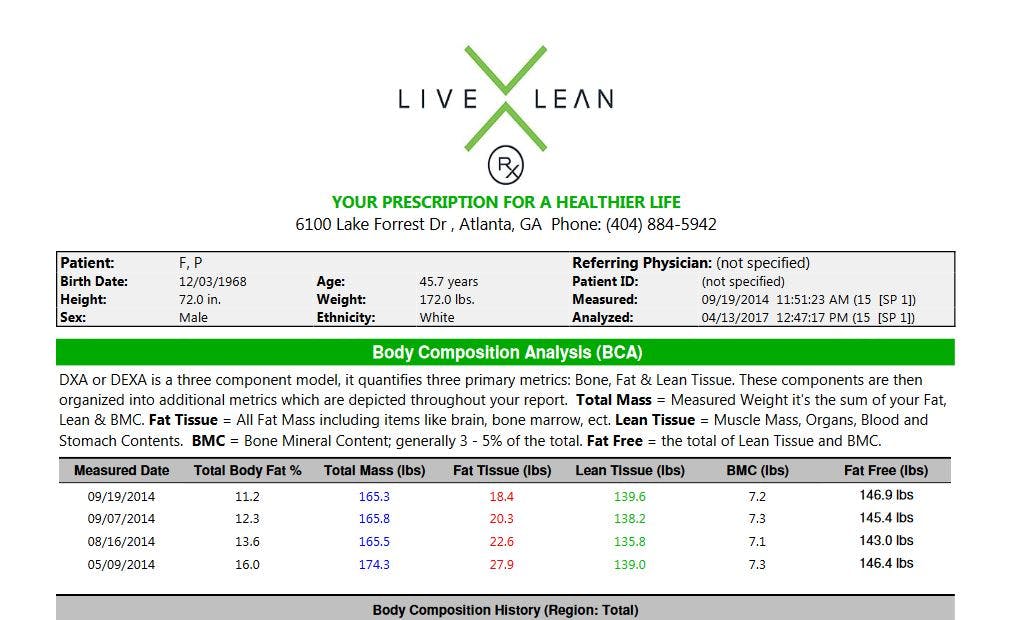
Body Composition: Why You Should Care
“I really need to lose a few pounds.”
We’ve probably all had this conversation with our self when getting dressed in the morning or even being brave enough to step on the bathroom scales. As a society, Americans are typically overweight, increasing the need for weight management and fitness programs.
So when you’ve decided to tackle the extra pounds on your skeleton, remember to focus on the right combination of consuming fewer calories and more exercise to burn additional calories.
Related Article: Fat Loss is Driven by a Sustained Caloric Deficit.
When we lose weight, most of us assume that we’ll lose the unwanted fat on our body and retain the lean muscle that powers us along our way each day. Unfortunately, that assumption is wrong. With most quick weight-loss programs, your body will lose some fat, but along the way, can lose considerable muscle mass at the same time. In order to lose the fat, you need to have the right balance of caloric intake (what you eat), some additional nutrients (to ensure you are getting the proper nutrition), and a customized exercise program to make sure you are targeting the correct parts of your body to burn the unwanted fat – all without losing too much muscle mass.
Body Composition – what are we made of?
When you take an inside look at what just makes our bodies tick, there’s a lot going on! Scientists have determined that the average body is made up of more than 37,000,000,000,000 cells. Yes, that’s 37 TRILLION cells in the average body, with more than 50 billion fat cells and the average heart has more than two billion muscle cells. By looking at this from a simple theory, body composition refers to everything in your body, split up into different compartments. Two compartments are commonly used: fat mass and fat-free mass.
Fat mass refers to all the fat tissue in your body. Fat-free mass is everything else, including muscle, organs, bone and fluid. Each of these types of cells react differently to caloric intake and amount of exercise – causing you to lose or gain at a cellular level each day. And just stepping on that bathroom scale to measure your weight-loss success can be very deceiving (and disappointing).
When you start exercising, you may gain two pounds of muscle in the first month. At the same time, you may lose two pounds of fat due to burning more calories through exercise or changes in your diet.
Since your fat-free mass increased by the same amount as your fat mass decreased, your body weight won’t change – but your body composition has.
If you focus on the number on the scale, you may become discouraged or frustrated because your program “isn’t working.” This is one example of why knowing your body composition is much more useful than knowing your body weight.
How Do I Find Out My Body Composition?
Instead of stepping on the bathroom scales, a much more useful mode of measuring progress is a DEXA scan for body composition and body fat testing. The DEXA scan uses low energy, quantitative vs. diagnostic x-ray to measure the proportions of fat, muscle, and bone in the body, and is considered as the gold standard, most thoroughly and scientifically validated method for body fat measurement. This means we can go far beyond simply measuring weight loss and start focusing on FAT loss. Find a DEXA Scan Near You.
